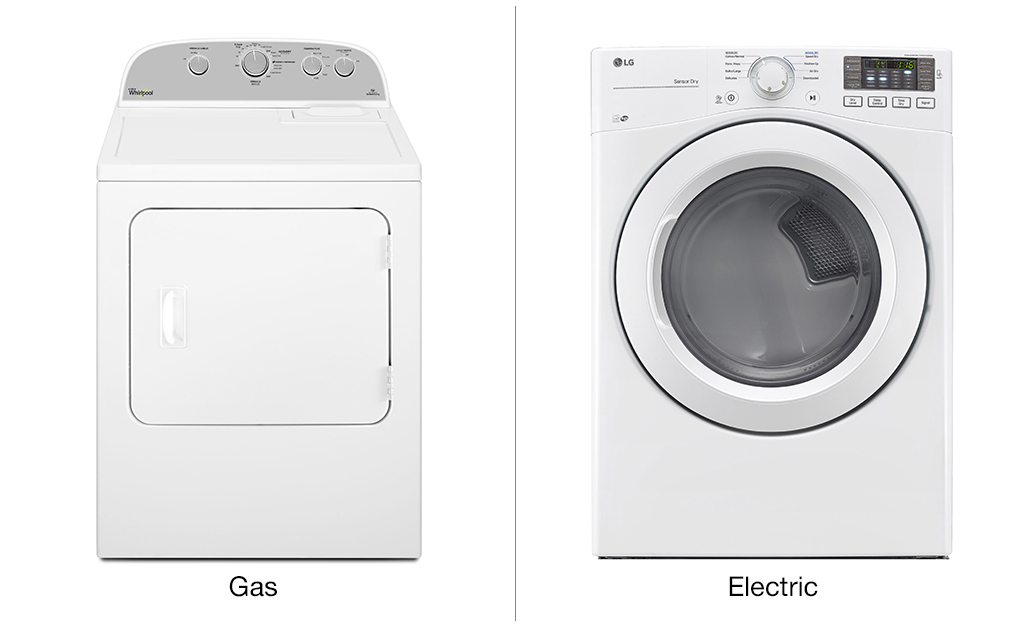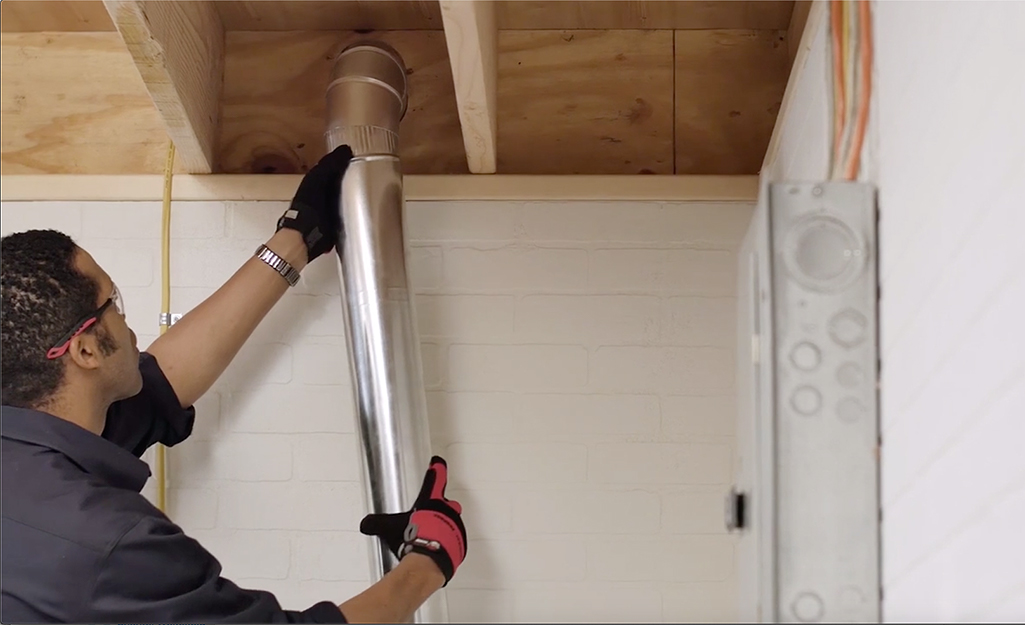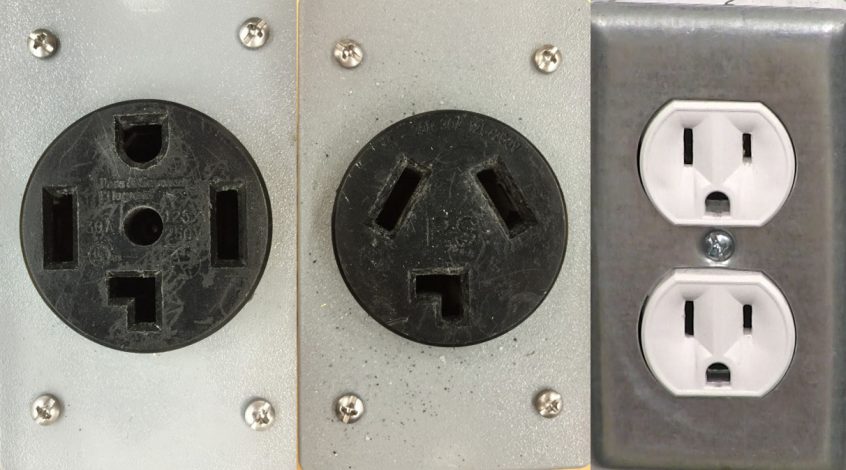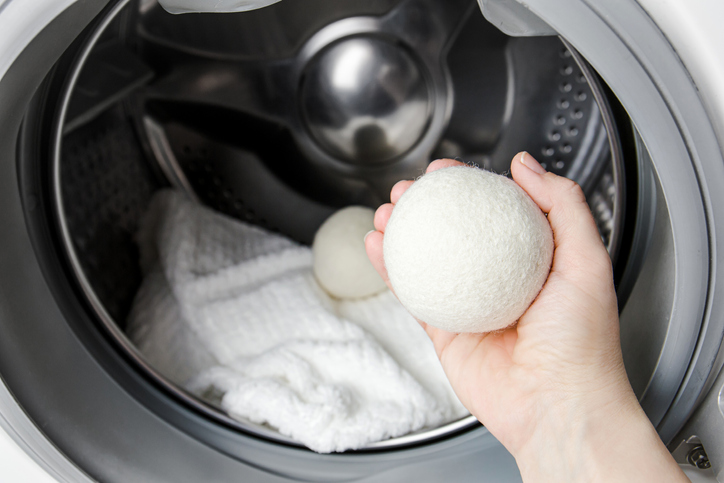According to statistics from Energy Star, a government-backed certification program that ranks the energy efficiency of commercial products, your dryer is one of your household’s top energy-consuming appliances. A clothes dryer can use twice as much electricity as an efficient refrigerator or as much as four times the energy of a new washing machine.
But not all dryers are created equal. Energy Star estimates that the energy usage of modern dryer models varies by around 33%, depending on the type and model of dryer. In this article, we’ll talk about which type of dryer is more energy efficient and why.
How Dryers Use Energy
Both gas and electric dryers work on the same basic principles. They pump air across a heating coil to warm it up, then fan the air through the spinning drum of clothes. The warm air collects moisture from the wet clothes and turns it into steam, which is then pumped out and replaced by a fresh batch of warm air.
Gas dryers heat up the coil with a gas fire, which requires a gas hookup. Electric dryers heat the coil with electricity.
Although both types need to be plugged in, if you’re wondering which dryer uses more electricity, the answer is the electric dryer. Gas dryers use only a small amount of electricity to power the small fan that pushes the warm air through the drum, while electric models use electricity to power all their functions.
Total energy usage, however, is a different question. The energy efficiency of clothes dryers is measured using a standard called the combined energy factor (CEF), which calculates how many kilowatt-hours of energy it takes to dry an average load of clothes.

Gas Dryer Efficiency
Overall, gas models are more energy-efficient dryers than electric models. The CEF of a typical gas dryer is 2.67. This is high compared to most other home appliances, but it’s still slightly lower than the typical electric dryer.
In practical terms, this CEF differential means the average gas dryer uses around 50% less energy per load than the average electric dryer. In part, this is because gas dryers heat up faster and hotter than electric models, which dries a load of laundry faster. Gas dryers also generate an average of 60% less carbon dioxide than electric dryers.
Gas dryer efficiency will end up saving you money on utility bills in the long term. In the short term, however, a new gas dryer is a bit more expensive than a new electric dryer. It is also more expensive to repair.
A new gas dryer usually costs about $100 more than a similar new electric dryer. Generally speaking, if you use your dryer around 100 times every year, you’ll end up saving hundreds of dollars over the unit’s lifespan. The higher initial cost ends up acting like an investment that pays for itself in a few years.
Besides the lower energy use, the faster drying time also means your clothes will last longer. The moisture sensors that come with more and more gas dryers match the amount of heat produced to the amount of moisture left in the clothes. This dries a load of laundry faster and then turns the flame off when it’s no longer needed instead of blindly depending on a time cycle.
Remember, though, that a gas dryer requires a gas hookup. If your laundry space doesn’t already have a gas line, installing one can require a high additional expense.

Besides a gas line, your gas dryer will need a ventilation system to get rid of the hot steam. Most building codes require gas dryer vents to have an outdoor exit to prevent any harmful gas byproducts from ending up indoors. If you live in an apartment or a condo without a preexisting ventilation solution, you may not be able to use a gas dryer.
Electric Dryer Efficiency
The average CEF of an electric dryer is around 3.01, slightly higher than that of the average gas dryer CEF. That means you’ll use about twice as much energy per load.
Electric dryers need to plug into a 240-volt outlet, which puts out twice as much power as a regular outlet and has three or four prongs instead of the standard two. This higher voltage goes toward powering the energy-intensive heating coil and spinning the drum and fan, as well as activating the control panel and lights.
If you don’t already have a 240-volt plug near your laundry area, you’ll need to contact an electrician to install one. These are generally easy to install and don’t require nearly as much space as the gas dryer’s gas line and condensation vent. This makes electric dryers the more space-efficient option.

Final Word
Since electric dryer savings come upfront and gas dryer savings accumulate over time, it’s important to think about whether you intend to use the same dryer for five years or more. If so, a gas dryer is a more efficient and economical option. If not, an electric dryer may save you in upfront costs and space.
If you’re in it for the long haul, keep in mind that the average lifespans of the two types of dryers are about the same. Gas dryers are generally expected to last around 13 years, and electric dryers have an expected lifespan of around 14 years.
Visit the dyer page of Washers & Dryers 360 for more information to help you decide which of all the energy-efficient dryers on the market is right for you.

